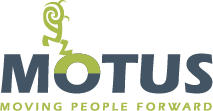There’s nothing more exciting than when a company thinks it has secured a talented candidate to join their team. However, just because the candidate is interested in working with you does not mean they will ignore perceived red flags. The recruitment process is where most companies find themselves losing candidates who have been sourced directly or have applied through a job posting.
Companies can significantly increase their internal fill ratio by getting out of the habit of doing the following:
Drawing Out the Recruitment Process
There are several factors that can draw out the recruiting process. A common example is when hiring managers take longer than 72 hours to give feedback on top talent. Most candidates don’t put their eggs in one basket and are actively looking for positions, while other companies desire their skillset. When a candidate checks all the boxes, it’s crucial to get in front of these candidates and expedite the interview process so hiring managers don’t miss out. The last thing your organization wants is to have talented individuals going to your competitor.
Other factors consist of your organization’s hiring policies. From the initial phone call to a start date, the overall process can take an average of around 23 days. While excellent candidates might be considering your organization, drawing out your process could be sending the wrong message. Oftentimes, the message they receive from the delay is uncertainty about their chances and/or the impression they’re not your top pick, thus they withdraw from consideration.
Showing Up Late/Unprepared for Interviews
Showing up late for an interview or showing up unprepared is a huge deterrent for top talent. Candidates are interviewing your organization as much as you’re interviewing them. A candidate’s opinion of your organization can change dramatically if tardiness or disorganization is common. While it’s crucial for candidates to sweep hiring managers off their feet, hiring managers sometimes forget it’s just as important to create a positive impression of their organization. Especially, since most candidates are taking time away from their current place of employment to interview. The minimum expectation is to always be timely, prepared, and have read the candidate’s resume.
Asking for Finished Work Before an Interview
Sometimes, asking a candidate to work on a fake project as a test for the position can be necessary when searching for a specific skill set. However, asking a candidate to produce real work that will be used in the business is unethical and should not be a best practice within your organization. This tells candidates you’re comfortable taking advantage of the people you work with and you might not always be ethical in your business.
When asking candidates to submit an exercise to demonstrate their skill set, consider how long it will take them to complete this work. If it takes longer than a few hours, this request will likely be unreasonable and will result in many qualified candidates removing themselves from the recruitment process. Also, never ask candidates to submit this work prior to a phone interview or in-person interview. Doing so will undoubtedly result in a frustrated candidate who takes a couple hours to put something together and doesn’t even get an interview.
If you’re interested in the candidate and think they could be a good fit, set up a time to talk about their experience. Better yet, go get coffee or lunch together and meet them first hand to discover who they are and what they are about. Either option will save the candidate and your organization time and frustration in the long run.







